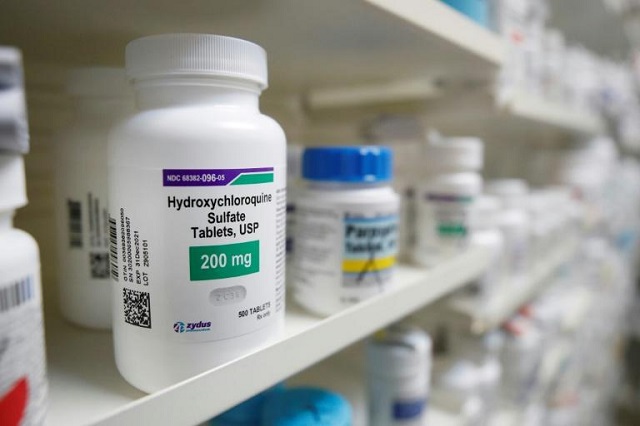
Kampala, Uganda | THE INDEPENDENT | The Ministry of Health says it has had good results using hydroxychloroquine and chloroquine in managing COVID-19 patients despite findings that the drugs have no effect on treating the disease.
Uganda has used the two drugs in combination with azithromycin to manage its COVID-19 patients at Entebbe General Hospital. So far, 53 patients have been treated at Entebbe and they have fully recovered. In addition to hydroxychloroquine, the patients have been given Vitamin C.
But a multinational registry assessment study conducted by scientists in 671 hospitals across six continents between December 20, 2019, and April 21, 2020, found that the two drugs that have been widely used in the treatment of COVID-19 instead lowered the chances of survival for those who used them.
According to the findings, which were published in the lancet on Friday, patients who were on the two regimens had decreased survival and increased frequency of ventricular fibrillation. Based on this finding, the scientists concluded that even though they are good for other illnesses, the drugs are not effective in the treatment and management of COVID-19.
But Dr Diana Atwine, the permanent secretary at the Ministry of Health says that despite the recent findings, Uganda has scored good results from using the drugs. “These drugs are not new. We have used them before. We know they have side effects but in terms of our case management, we saw good results,” Dr Atwine said.
Prof Pauline Byakika, a member of the Scientific Committee on COVID-19 says that the findings need to be interpreted cautiously because they were from an observational study which has many unknowns.
Prof Byakika however quickly added that they did not see any difference in patients who used the drug and those who did not.
“The drug was only used in one hospital. Other hospitals did not use it and we didn’t see big differences in patients who used it or those who did not. We need to carry out more trials to get robust evidence,” she said.
The drugs have properties that help to stop the virus from getting into the cell and multiplying, reducing disease progression and severity.
******
URN
 The Independent Uganda: You get the Truth we Pay the Price
The Independent Uganda: You get the Truth we Pay the Price




How does it compare with asprin or paracetamol?
More studies need to be considered, to prove the efficiency/efficacy of chloroquine in management of COVID 19. Otherwise, well done health Ministry-uganda.
Please abide by science and not anectdotal examples of this malarial tratment that have not stood up to real trials of scientific methodology that have show instead the increased deaths from hydroclorophine use . The covid 19 attacks the immune system as well as lungs and the treatment urged by trump kills more in test groups using hydroclorophine than the non user group.
Not according to front line doctors in the US. Hydroxychloroquine is seen not only as an effective treatment but most importantly as a highly effective prophylaxis providing safeguards for medical personnel working on the front lines and for vulnerable sectors of the population. Of course, it’s important to administer the drug at or below recommended dosages where it has been observed to produce little to no side effects while protecting people from malaria for over 65 years. Unfortunately, many of the tests to assess the effectiveness of chloroquine in the treatment of vulnerable patients who are already in advanced stages of CoVid-19 are producing undesirable results because patients are received as much as four times the recommended dosage.
Why are you quoting the Lancet? The article was debunked and removed. There have been 53 studies done proving HDQ’s effectiveness and all the others were botched by overdosing or giving it to patients who were extremely sick rather than the first stages.